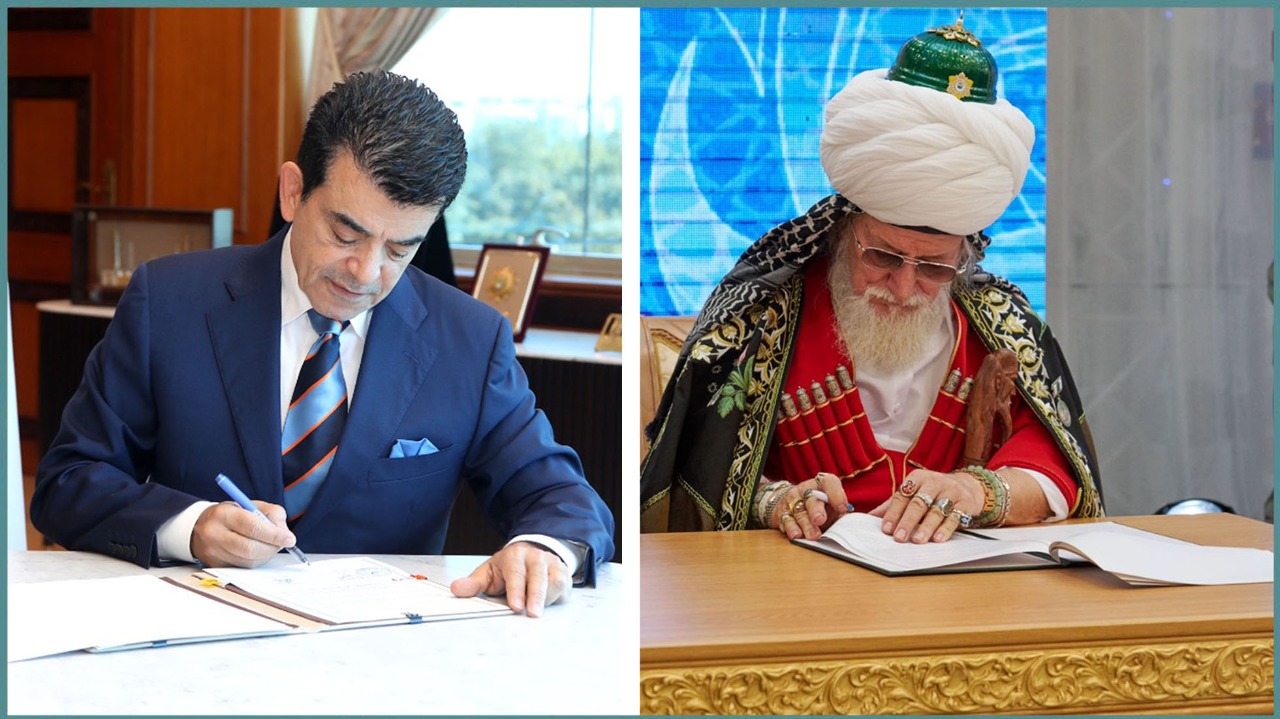
Signing of Agreement to Create ICESCO Chair for Arabic Language in Service of Dialogue and Coexistence at Russian Islamic University

3 October 2022
The Islamic World Educational, Scientific and Cultural Organization (ICESCO) and the Central Spiritual Administration of Muslims of Russia (CSAMR) in the Republic of Bashkortostan signed an agreement to create the ICESCO Chair for Arabic Language in Service of Dialogue and Coexistence at the Russian Islamic University, which reports to the Central Spiritual Administration. The Chair aims to promote the position of Arabic among the foreign languages taught at the Russian Islamic University in Ufa, and in all the universities of the Russian Federation and the countries of Central Asia.
The Agreement was signed by Dr. Salim M. AlMalik, ICESCO Director-General, and His Eminence Shaykh al-Islam Talgat Safa Tajuddin, Chairman of the CSAMR.
The Chair falls within the framework of the cooperation programme between ICESCO and Hamdan Bin Rashid Al Maktoum Foundation for Distinguished Academic Performance to support the “Project of Teaching Arabic in non-Arabic Speaking Countries.” It aims at intensifying scientific and educational research on issues of teaching Arabic to non-Arabic speakers at the Russian Islamic University in Ufa and in all educational and scientific research institutions in the Russian Federation and countries of Central Asia; and developing approaches, curricula and tools for teaching Arabic for non-Arabic speakers within the framework of the local specificities of the region.
The Chair also seeks to enrich the comparative linguistic studies between Arabic and the mother languages of students and researchers; highlight the literary and scientific heritage written in the languages of Muslim peoples transcribed in the Arabic script in the Russian Federation and the countries of Central Asia; and highlight the moderation of Islam, its civilizational contributions and its noble human values.
The creation of the Chair falls as part of ICESCO’s vision to capitalize on specialized university chairs in the field of Arabic for Non-Arabic speakers to promote the roles of universities in promoting applied linguistic research, excellence and innovation, and diversifying sources of knowledge to enable universities to lead national efforts to develop Arabic education and create the necessary academic conditions to foster the spirit of innovation, initiative and development.




